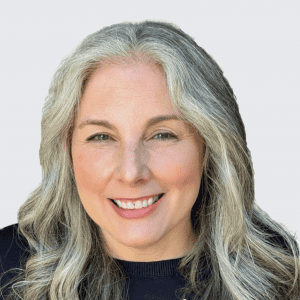For many years, patients and families affected by Dravet syndrome (DS) felt alone and unheard. They struggled finding medical specialists who could not only recognize and diagnosis the disease, but also knew the best ways to approach treatment. Thanks to advancements in the last decade in the understanding of DS, there has been significant progress in the development of diagnostic tools and appropriate treatment protocols.
When you are dealing with any life-long medical condition, it is important that you build a team of medical providers. Since DS is progressive in nature – with other health co-morbidities developing with age – a delayed diagnosis means a delay in treatment which can have potential negative health consequences. If you are looking for a specialist who understands DS, you should begin by looking at the DSF website. DSF’s Find a Doctor tool provides a listing of medical professionals who have an understanding of DS and treatment. Our Dravet Comprehensive Care Center directory helps families find a treatment center that has healthcare professionals of various specialities who work together to treat the patient. If you are a member of the private DSF Parent & Caregiver Support Group, it is a good place to ask for recommendations from other parents of specialists near you.
Family physicians, pediatricians, and other primary care providers play an important role in early identification and long-term management of patients with DS. It is important for your child\’s specialists and generalists alike to remain as current as possible in the field of DS. Even with a diagnosis, is it critical that caregivers educate themselves as much as possible, because chances are you will be the expert in the room with many of the doctors your child sees. Sharing literature produced by DSF on the syndrome and/or bringing along information such as established treatment guidelines or other relevant information assures the avoidance of unnecessary testing and appropriate care.
You will develop a partnership with your child’s medical team and while you may not see eye to eye on everything, it is helpful if there is mutual respect and you can all work well together. Your relationship to your child’s medical team has everything to do with their health and well-being. If you don’t have a good working relationship, then that doctor is not the right one for your child’s care team. Some patient families prefer doctors who are direct and blunt, and others work better with doctors who are empathetic. When there is a mismatch, neither party is at fault, but it could be grounds to explore other options for the patient’s care and management.
Here are some things you should consider when building your child’s medical team to make sure that these are the best professionals for you and your child.
Is this medical professional:
- Someone who is open and thorough. It is important that you understand why he or she is ordering a specific test or suggesting a certain treatment.
- Someone who shares all results with you in terms you understand rather than complicated medical jargon. If you are unable to understand the information provided, it is meaningless to you in making future decisions for your child.
- Someone who makes the time to listen without interrupting and answers your questions. You should never leave an appointment feeling confused or uninformed.
- Someone who understands if you want to get a second opinion. A good doctor welcomes and understands the value of a second opinion, especially when dealing with a complex medical condition such as DS.
- Someone who shares your approach to care management. If your doctor consistently insists on a more aggressive approach than what you are comfortable with, or if you frequently are not comfortable with care recommendations, get a second opinion or consider finding a new doctor.
- Someone who is willing to coordinate with other medical professionals. Care coordination is crucial for a medically complex patient. Your primary doctors should be keeping track of specialists’ reports and discussing recommendations with you.






